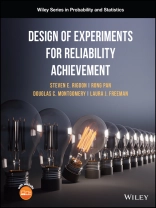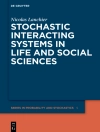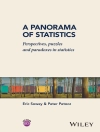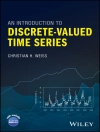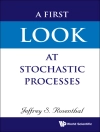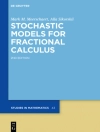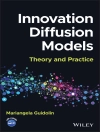ENABLES READERS TO UNDERSTAND THE METHODS OF EXPERIMENTAL DESIGN TO SUCCESSFULLY CONDUCT LIFE TESTING TO IMPROVE PRODUCT RELIABILITY
This book illustrates how experimental design and life testing can be used to understand product reliability in order to enable reliability improvements. The book is divided into four sections. The first section focuses on statistical distributions and methods for modeling reliability data. The second section provides an overview of design of experiments including response surface methodology and optimal designs. The third section describes regression models for reliability analysis focused on lifetime data. This section provides the methods for how data collected in a designed experiment can be properly analyzed. The final section of the book pulls together all of the prior sections with customized experiments that are uniquely suited for reliability testing. Throughout the text, there is a focus on reliability applications and methods. It addresses both optimal and robust design with censored data.
To aid in reader comprehension, examples and case studies are included throughout the text to illustrate the key factors in designing experiments and emphasize how experiments involving life testing are inherently different. The book provides numerous state-of-the-art exercises and solutions to help readers better understand the real-world applications of experimental design and reliability. The authors utilize R and JMP¯® software throughout as appropriate, and a supplemental website contains the related data sets.
Written by internationally known experts in the fields of experimental design methodology and reliability data analysis, sample topics covered in the book include:
* An introduction to reliability, lifetime distributions, censoring, and inference for parameter of lifetime distributions
* Design of experiments, optimal design, and robust design
* Lifetime regression, parametric regression models, and the Cox Proportional Hazard Model
* Design strategies for reliability achievement
* Accelerated testing, models for acceleration, and design of experiments for accelerated testing
The text features an accessible approach to reliability for readers with various levels of technical expertise. This book is a key reference for statistical researchers, reliability engineers, quality engineers, and professionals in applied statistics and engineering. It is a comprehensive textbook for upper-undergraduate and graduate-level courses in statistics and engineering.
Inhoudsopgave
Preface xiii
About the Companion Website xv
Part I Reliability 1
1 Reliability Concepts 3
1.1 Definitions of Reliability 3
1.2 Concepts for Lifetimes 4
1.3 Censoring 10
2 Lifetime Distributions 17
2.1 The Exponential Distribution 17
2.2 The Weibull Distribution 22
2.3 The Gamma Distribution 25
2.4 The Lognormal Distribution 28
2.5 Log Location and Scale Distributions 30
3 Inference for Parameters of Life Distributions 39
3.1 Nonparametric Estimation of the Survival Function 39
3.2 Maximum Likelihood Estimation 46
3.3 Inference for the Exponential Distribution 50
3.4 Inference for the Weibull 58
3.5 The SEV Distribution 59
3.6 Inference for Other Models 60
3.7 Bayesian Inference 67
Part II Design of Experiments 89
4 Fundamentals of Experimental Design 91
4.1 Introduction to Experimental Design 91
4.2 A Brief History of Experimental Design 93
4.3 Guidelines for Designing Experiments 95
4.4 Introduction to Factorial Experiments 101
4.5 The 2k Factorial Design 114
4.6 Fractional Factorial Designs 135
5 Further Principles of Experimental Design 157
5.1 Introduction 157
5.2 Response Surface Methods and Designs 157
5.3 Optimization Techniques in Response Surface Methodology 160
5.4 Designs for Fitting Response Surfaces 165
Part III Regression Models for Reliability Studies 185
6 Parametric Regression Models 187
6.1 Introduction to Failure-Time Regression 187
6.2 Regression Models with Transformations 188
6.3 Generalized Linear Models 198
6.4 Incorporating Censoring in Regression Models 205
6.5 Weibull Regression 208
6.6 Nonconstant Shape Parameter 228
6.7 Exponential Regression 233
6.8 The Scale-Accelerated Failure-Time Model 234
6.9 Checking Model Assumptions 236
7 Semi-parametric Regression Models 249
7.1 The Proportional Hazards Model 249
7.2 The Cox Proportional Hazards Model 251
7.3 Inference for the Cox Proportional Hazards Model 255
7.4 Checking Assumptions for the Cox PH Model 264
Part IV Experimental Design for Reliability Studies 269
8 Design of Single-Testing-Condition Reliability Experiments 271
8.1 Life Testing 272
8.2 Accelerated Life Testing 286
9 Design of Multi-Factor and Multi-Level Reliability Experiments 297
9.1 Implications of Design for Reliability 298
9.2 Statistical Acceleration Models 299
9.3 Planning ALTs with Multiple Stress Factors at Multiple Stress Levels 311
9.4 Bayesian Design for GLM 322
9.5 Reliability Experiments with Design and Manufacturing Process Variables 326
Problems 336
A The Survival Package in R 339
B Design of Experiments using JMP 351
C The Expected Fisher Information Matrix 357
C.1 Lognormal Distribution 359
C.2 Weibull Distribution 359
C.3 Lognormal Distribution 361
C.4 Weibull Distribution 362
D Data Sets 363
E Distributions Used in Life Testing 375
Bibliography 381
Index 387
Over de auteur
Steven E. Rigdon, Ph D, is Professor in the Department of Biostatistics at Saint Louis University. He is also Distinguished Research Professor Emeritus at Southern Illinois University Edwardsville. His research interests include spatial disease surveillance and reliability assessment.
Rong Pan, Ph D, is Associate Professor of Industrial Engineering at the School of Computing, Informatics, and Decision Systems Engineering at Arizona State University. His research interests include failure time data analysis, design of experiments, multivariate statistical quality control, time series analysis, and control.
Douglas C. Montgomery, Ph D, is Regents Professor of Industrial Engineering and ASU Foundation Professor of Engineering at Arizona State University. His research interests include industrial statistics and design of experiments.
Laura J. Freeman, Ph D, is Research Associate Professor of Statistics and Director of the Intelligent Systems Division of the National Security Institute at Virginia Tech. Her research interests include design of experiments, leveraging experimental methods in emerging technology research with a focus in cyber-physical systems, artificial intelligence (AI), and machine learning.
